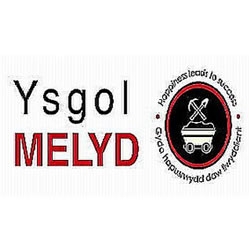
Organisation: Ysgol Melyd
Intervention: Catch Up® Literacy
Submitted by: Andrea Ellis-Williams
Background
Ysgol Melyd is situated in the village of Meliden near Prestatyn, North Wales coast. It provides education for pupils between three and eleven years of age. Currently, there are 147 pupils on roll including 11 who attend Nursery in the mornings.
A Language Resourced Provision has been sited at the school since 2004. This caters for KS1 pupils with SLI, (Specific Language Impairment). The pupils integrate with the mainstream school for various activities on a daily basis. Many pupils remain at Ysgol Melyd for KS2, choosing not to return to their original setting.
In 2010, Ysgol Melyd was awarded Enhanced Level Accreditation by the children’s charity I CAN. We are the only school in Wales with this accreditation, which recognizes the high quality support provided for all pupils with SLCN.
Implementation
Catch Up® Literacy is well established in Ysgol Melyd. The Catch Up® Coordinator and several staff are trained to deliver Catch Up® and there is a designated area for Catch Up® resources. Pupils are identified using the May NFER reading tests results and information from Class Teachers.
Parents are informed that their child is receiving the intervention and are invited to attend the school’s Catch Up® Information Session. This is a friendly occasion with refreshments, where the aims of the intervention are shared, including sessions run with staff, access to digital games and how
Catch Up® can be supported at home. The parents are given information to take home.
The Headteacher identifies staff to be trained based on performance management reviews and individual strengths and interests. Booklets are monitored termly and staff are observed annually.
The Catch Up® Coordinator tracks the children who have received the intervention and progress is discussed with class teachers and parents in Parents’ Evenings. If necessary, pupils are given extra reading support and use the Catch Up® Digital Games in school. Some Catch Up® pupils use the digital games at home.
Case Study 1 - Catch Up® Literacy
Pupil A received 50 Catch Up® sessions over eight months on Catch Up® Literacy and progressed from Level 4 to 8, gaining 26 months, a ratio gain of 3.
She was known to have Specific Literacy type difficulties e.g reversing letters, slow acquisition of phonic skills and a family history of dyslexia, but was chosen after careful consideration of her NFER result, conscientiousness, desire to succeed and home support.
She thoroughly enjoyed the sessions and quickly gained confidence. Her decoding and blending skills improved significantly, which improved the accuracy of her reading. She began to attempt harder words and self-correct, where previously she would wait to be told a word.
Later assessments showed very good progress with reading with significantly less progress in spelling. An EP assessment confirmed a Specific Literacy Difficulty (dyslexia). The class teacher identified a positive impact on her confidence and motivation towards reading in class.
Case Study 2 - Catch Up® Literacy
Pupil B has good support at home and her mother attended our Catch Up® Information for Parents session. Prior to the Catch Up® intervention she was very quiet and reticent in class and didn't participate in extra curricular activities.
Since participating in Catch Up®, she now actively takes part in school life. She attends a weekly Music Club, and is a school buddy helping other children during breaks. As part of the Catch Up® programme she had access to the digital games in school.
She received 51 Catch Up® sessions and gained 30 months in her reading age, a ratio gain of 4. She is predicted a Level 4 for English at the end of Key Stage 2. Her Catch Up® Exit Summary Sheet shows that she made significant progress in all areas, ie: decoding, blending, comprehension, spelling, handwriting, confidence, attitude and motivation to reading, expression, fluency and pace.
Aims
We provide a happy and secure environment where we show mutual respect, fairness, understanding and care for ALL.